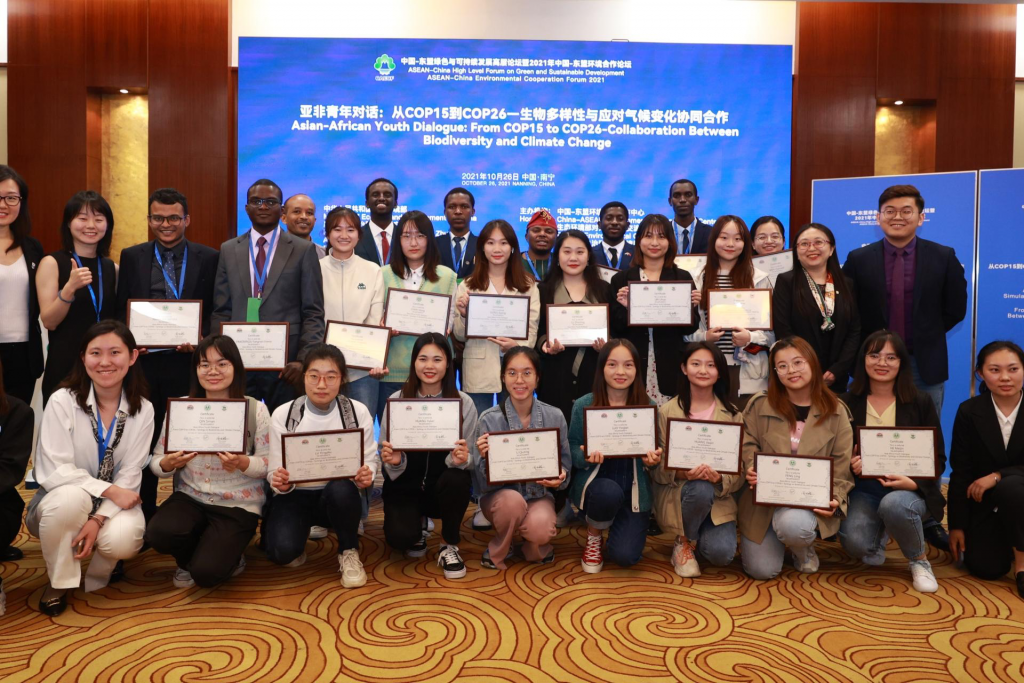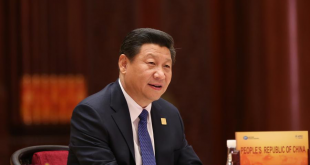Published: September 11,2024

With China’s help, Africa is marching toward “a modernization that is just and equitable, that guarantees equal opportunities, and that moves us toward a shared future for humanity,” Washington Aburiri, a Kenyan student at Beijing Jiaotong University (BJTU), told Xinhua excitedly. He was also delighted about the bright prospect of China-Africa cooperation brought about by the just-concluded 2024 Summit of the Forum on China-Africa Cooperation (FOCAC), during which Chinese President Xi Jinping announced the ten partnership actions for modernization to deepen China-Africa cooperation.
In fact, Aburiri himself has been both a participant and beneficiary of the flourishing China-Africa cooperation. He studied rail traffic and signal control for four years at BJTU before returning to Kenya to work as a railway signal engineer on the Chinese-funded Mombasa-Nairobi Standard Gauge Railway. He then returned to BJTU in 2023 to pursue a master’s degree in logistics engineering and management. “We gained a lot of knowledge and acquired valuable skills that will help us operate the transport system when studying in China,” said Aburiri. Last year, Aburiri, along with some other representatives of Kenyan students and alumni at BJTU, wrote a letter to Xi, in which they expressed their desire to play the role of friendship ambassadors between Kenya and China. Along with the letter, they sent a special gift to the Chinese leader: A ticket to ride the Mombasa-Nairobi Railway.
Earlier this year, Xi wrote back. In his reply, the Chinese leader said he was glad to see that they have bonded with China through this road to happiness, and benefited from China-Kenya and China-Africa friendship and cooperation. He encouraged them to continue contributing to the friendship between China and Kenya and between China and Africa, stressing that the magnificent picture of the Belt and Road Initiative and the grand blueprint of the China-Kenya comprehensive strategic cooperative partnership need more promising young people to realize. Aburiri noted that around 70 percent of the staff on the Mombasa-Nairobi Railway project are young people who take pride in contributing to such a significant endeavor and being part of the transition from old to new. Supporting young people and providing them with opportunities is the best way to build a strong community, he told Xinhua. “Young people are the cornerstone of the future,” Aburiri said. Many young people have dedicated themselves to China-Africa cooperation and exchanges across various fields, including Thomas Donglona Adawa, a Chadian international student pursuing a doctorate at Peking University.
In 2021, Adawa and over 40 other international students from Peking University wrote a letter to President Xi, sharing their experiences of studying and living in China, particularly highlighting “the development miracle we have witnessed here.” “In his reply, President Xi encouraged us to share our thoughts and experiences with more people and play an active role in promoting friendship between the peoples of all countries,” recalled Adawa, whose doctoral research focuses on “African issues and African solutions.” So far, he has traveled to 15 provinces across China to study the country’s economic and social development. “Chinese-style modernization is rooted in its unique history and culture, offering valuable inspiration for African countries,” he said. “We must also explore a path to modernization that aligns with our own development needs.”
Thanks to the platform provided by the FOCAC, young people from China and Africa can continue to exchange ideas, which will undoubtedly contribute to the long-term development of China-Africa relations and support their shared path toward modernization, Adawa told Xinhua. Cultural exchanges among youth are a vital component of China-Africa relations. In 2013, during his visit to South Africa, President Xi witnessed the signing of an agreement between China and South Africa to jointly establish the Confucius Institute at Durban University of Technology. In a reply letter to 50 faculty members and students from the institute in 2023, Xi encouraged them to be envoys for inheriting and developing the friendship between the two countries, so as to contribute to promoting China-Africa friendship and cooperation and building a community with a shared future for mankind.
Wu Lin, co-dean of the institute, told Xinhua that since its establishment, the institute has trained over 10,000 students, sparking interest among African youth in the Chinese language, culture, and national development. “Youth has become a crucial link in the inheritance of China-Africa friendship and a key driver of mutual learning between China and Africa,” said Wu. Among the just-unveiled ten partnership actions, one is to further boost China-Africa people-to-people exchanges. According to the action plan, China will establish an engineering technology academy, build 10 Luban Workshops with Africa, and provide about 60,000 training opportunities to the African people, mainly for women and young people. The future of China-Africa relations lies in young people. As Xi noted in the keynote speech addressing the 2018 FOCAC Beijing Summit, the baton of China-Africa friendship will be passed from one generation to the next and that China and Africa, working together, will build an even more vibrant community with a shared future.
Xinhua
 Africa -China Review Africa -China Cooperation and Transformation
Africa -China Review Africa -China Cooperation and Transformation
